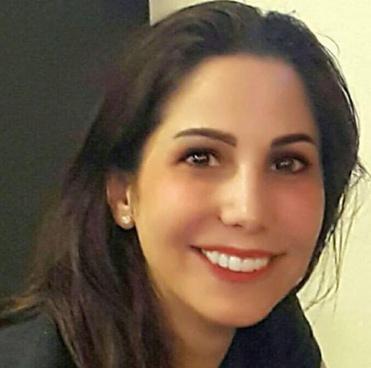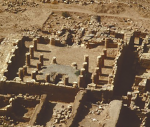You are here
Jordan's first female forensic doctor says pathologists need legal protection
By Laila Azzeh - Jun 29,2015 - Last updated at Jun 29,2015

Jordan’s first female forensic doctor Israa Tawalbeh says she choose the profession because she sees it as a nexus between medicine and law (Photo courtesy of Israa Tawalbeh)
AMMAN — Providing legal protection to pathologists is vital for the betterment of the profession, according to Jordan's first female forensic doctor Israa Tawalbeh.
Although the nature of their work and interaction with the family of victims, lawyers, judges and doctors require legal protection, pathologists stand in court to testify and provide details about crimes without being legally protected, she said.
"One of the main gaps is that we do not have legal protection. I testify in court as any other individual," Tawalbeh told The Jordan Times in a recent interview.
Moreover, she believes that forensic medicine's "subjection" to the Health Ministry is hindering the development of this "crucial" scientific branch.
Serving in a field that is globally recognised as intricate and demanding, she sees pathology as the backbone of the judiciary, which is "weakened with the weak forensic medicine".
"We deal with cases that involve abuse against the soul, body and brain. Our field is that sensitive and distinct," highlighted Tawalbeh, who now serves at the Family Protection Department.
She also cited low salaries and lack of continuous training as challenges facing pathologists in the Kingdom.
All these factors contribute to making forensic pathology a less attractive medical branch, according to Tawalbeh, who noted that only few forensic doctors serve in Jordan although the sector has the potential to grow.
"Jordan can become the regional centre for forensic training. We have all the tools but lack the necessary support," the pathologist said.
Tawalbeh said she could have chosen another "less challenging" medical branch when she graduated from medical school in 1999, but pathology, deemed a "male-dominated" profession, was her path because it is a "nexus between medicine and law".
"I was looking for a field that is related to medicine and justice together. I even thought about studying law after medicine," noted the doctor, who earned her practitioner's general degree from a Libyan university.
Her career choice of pathology was "frowned upon" by Health Ministry officials, who believed the profession does not suit women.
However, Tawalbeh met Momen Hadidi, head of the National Institute of Forensic Medicine (NIFM) at the time, who encouraged her to enter the field.
"He told me how important it was for abuse victims, especially children and women, to find a female pathologist to resort to," she said, but added that she had to exert "extra" efforts to prove her ability.
"I told him [Hadidi] that he will not feel that there is a woman in the unit," she said, noting that her first test was to attend an execution.
Tawalbeh said she will never forget the first time she was left alone with a corpse.
"The body belonged to a man who committed suicide by shooting his head. It was an uneasy scene, but I broke the silence by speaking to the body and asking questions about the reasons behind his decision," she said.
During her years of service as resident forensic medicine specialist at NIFM, she performed hundreds of autopsies and attended two executions.
Perhaps Tawalbeh was the role model for another two female pathologists who joined the profession in Jordan later on.
Injustice is what worries the pathologist when writing her reports, making sure to suppress her emotions and focus on professional assessment.
Sexual assault on children remains the most psychologically painful experience for Tawalbeh.
"Listening to a child describe sexual assault is a very painful and daunting experience," she said.
The mother of three has managed to strike a balance in her life despite the complexity of her career.
"I know that pathologists can suffer breakdowns or become suspicious of everything around them; that is why in the US forensic doctors are given the choice to retire after eight years in service.
"But I manage to unwind and take off the woes of work once I reach home."
Related Articles
I appreciate Jordan’s first female forensic doctor Israa Tawalbeh’s view that legal protection should be provided to forensic pathologists s
AMMAN — Almost 15 years after becoming the first female pathologist in Jordan, Isra Tawalbeh was appointed as the first woman to run a gover
AMMAN — The Criminal Court prosecutor on Monday charged a 38-year-old father with manslaughter in connection with the alleged electrocution


















